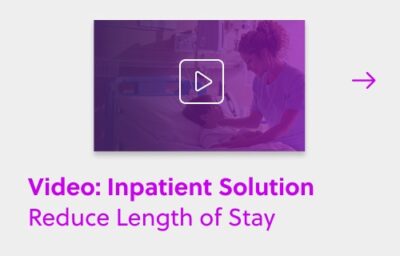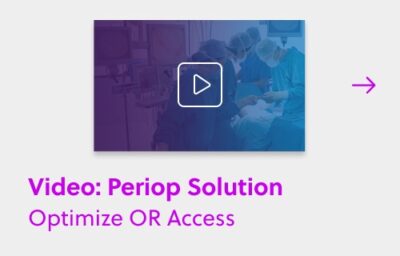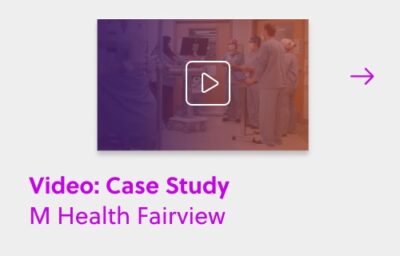After an unprecedented year that put health systems and hospitals under the spotlight, leaders are reexamining their operations and renewing their focus on driving efficiency and throughput.
To learn more, we asked health system leaders at the 2020 Healthcare Operations Innovation Summit to share their perspectives on the current state of healthcare operations, the impact of the Covid-19 pandemic, and what’s top-of-mind for them looking ahead to 2021.
You can view event highlights here and watch the full sessions here.
Here are five key takeaways:
#1: Covid-19 has prompted a heightened focus on operational efficiency.
Even for many hospitals and health systems that already had successful performance improvement initiatives, Covid-19 further stress-tested bed capacity and exposed new opportunities to address patient flow and throughput.
- “Overall, Covid challenged our assumptions around our operations, and that caused us to look again at how we might approach the next horizon of improving our performance. It also amplified gaps that we had.” –Alastair Bell, MD, MBA, Executive Vice President, Strategy & Chief Operating Officer, Boston Medical Center
- “In order for health systems, particularly large health systems, to be able to really meet the scale and efficiency demands, they have to revisit their operations.” –Renee DeSilva, Chief Executive Officer, The Health Management Academy
- “The hospitals still create the margin. We have to continue to optimize that so we can pay for all the things that we need for our communities and continue to offer care to as many people as possible.” –Kim Post, RN, MBA, DNP, Executive Vice President & Chief Operating Officer, HonorHealth
#2: Frontline teams need new innovations to address the other healthcare crisis: burnout.
Even before Covid, frontline teams were already under an inordinate amount of stress, with many tasks taking away valuable time for direct patient care. The pandemic has only made that worse, and leaders are adopting new solutions to give teams time back at the bedside.
- “Giving frontline teams the gift of spending more time to manage and care for patients will help us in many ways. It helps all of us connect with why we chose healthcare. It provides time for people to become a team, relish in that environment, and flourish as professionals.” –Kim Post, RN, MBA, DNP, Executive Vice President & Chief Operating Officer, HonorHealth
- “We’re very aware that nurses and doctors are pulled in way too many directions. We use Qventus to help orient them to where’s a win that they can get during their day or help connect them in ways that they might not have known.” –William Nicholson, MD, Vice President of Medical Affairs, Hospitalist, M Health Fairview
#3: EHRs are in place to capture data; now, it’s time to unlock new value from them.
While EHRs are essential systems of record, there is growing recognition that frontline teams need new solutions that intuitively present data and drive action.
- “Epic and other EHRs move data around internally very well. But they do not do the last mile question of getting data to the user unless the user goes to pull data.” –Joseph Sanford, MD, Chief Clinical Informatics Officer, University of Arkansas for Medical Sciences
- “I’ve used discharged dashboards, discharged spreadsheets, discharge Pareto charts, and a mountain of Epic reports. As a physician, Qventus has given me a real-time playbook that contains the most important information around every patient’s flow.” –William Nicholson, MD, Vice President of Medical Affairs, Hospitalist, M Health Fairview
#4: Successful operational transformation requires expert change management.
To drive and sustain results, it takes more than just innovative technology — leaders are acutely aware of the importance of smart integration with clinical workflows and the power of behavioral science to drive change.
- “Some of the work that NewYork-Presbyterian and Qventus did early on was not about the technology side of innovation, although we were really happy with the AI and machine learning. But Qventus was a good partner in learning our clinical operations and establishing standardized baselines that we just never had before.” –Daniel Barchi, MEM, SVP, Chief Information Officer, NewYork-Presbyterian
- “The behavioral science piece to hardwire change, to me, is probably one of the most forgotten pieces in change management and really making any improvement.” –Kim Post, RN, MBA, DNP, Executive Vice President & Chief Operating Officer, HonorHealth
#5: In the new normal, operational efficiency is a defining new competitive advantage.
Mounting pressures on hospitals and health systems are prompting leaders to redefine what operational success looks like and take advantage of new sources of differentiation.
- “I grew up with the ‘no margin, no mission’ motto. I really prefer to flip that around and say, ‘no mission, no margin.’ I say that because my mission, amongst many others, is really centered around flow. I found a quote from Don Berwick, and he says: ‘Flow is every bit as consequential for the health of our systems and the wellbeing of our patients, and deserves the same strategic prioritization as safety.’ And I think that’s what we’re talking about here.” –Tony Seupaul, Chief Clinical Officer, University of Arkansas for Medical Sciences
- “I think 40 years from now, we’re going to look back and find it funny that doctors and nurses used to do a lot of things on their own and weren’t merely making smart decisions from more of a command center approach. I think we’re in that transition period, and Qventus is helping us automate a lot of those functions.” –Daniel Barchi, MEM, SVP, Chief Information Officer, NewYork-Presbyterian
- “The future favors the bold. And I think there is an aggressive leaning in to doing things that [health systems] would have considered unlikely in the past.” –Renee DeSilva, Chief Executive Officer, The Health Management Academy
To view event highlights and sessions, click here.


